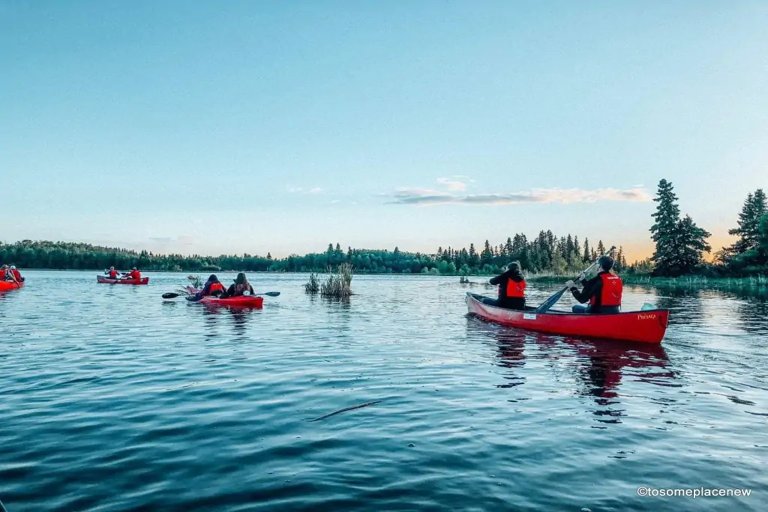Exploring Elk Island: Edmonton’s Wilderness Escape
Just outside the city, this national park offers stargazing, bison sightings, and quiet canoe routes for locals seeking nature.

Just 35 minutes east of Edmonton, Elk Island National Park offers a dramatic shift in scenery—from city skyline to wide-open grasslands and aspen forest. Known as Canada’s only fully enclosed national park, it’s a sanctuary not only for wildlife, but for urban dwellers seeking a peaceful daytrip or weekend retreat.
The park is home to one of North America’s most successful bison conservation efforts. Herds of both plains and wood bison roam freely across its 194 square kilometers, often spotted grazing near roadways or silhouetted against the setting sun. Visitors regularly pull over to capture these majestic animals on camera, sometimes mere meters away.
Aside from bison, Elk Island hosts elk, moose, coyotes, and over 250 species of birds. Spring migration draws birders from across the province, eager to catch glimpses of pelicans, avocets, and sandhill cranes. The park’s mix of wetland and prairie ecosystems makes it a haven for biodiversity.
Stargazing is one of the park’s most underrated draws. Designated a dark-sky preserve, Elk Island offers dazzling nighttime views with minimal light pollution. Amateur astronomers often gather for meteor showers, while casual visitors lie back on blankets to take in the Milky Way.
Canoeing and kayaking are popular in Astotin Lake, where calm waters reflect sky islands and distant treetops. Rental options are available seasonally, and the lake’s sandy beach is a favorite among families in summer. Floating quietly near the shoreline, paddlers may spot beavers, grebes, or the occasional otter.
The park’s trail system includes options for all fitness levels. The Living Waters Boardwalk is wheelchair accessible and ideal for short strolls, while the 16-kilometre Hayburger Trail offers a half-day trek through diverse habitats. Winter visitors enjoy snowshoeing and cross-country skiing on groomed routes.
Interpretive programming adds depth to the experience. Park staff lead bison-handling demonstrations, Indigenous cultural talks, and nighttime owl prowls. These interactive sessions aim to foster a deeper connection between visitors and the land’s ecological and historical significance.
Camping is available year-round, with oTENTiks—hybrid tent-cabins—offering a cozy option for those without their own gear. Firewood, picnic shelters, and clean facilities make Elk Island a comfortable yet rustic getaway, even for novice campers.
Edmonton locals often refer to Elk Island as their 'nature fix.' It’s where families teach kids to roast marshmallows, couples go for quiet walks, and solo hikers retreat for reflection. 'It resets you,' says longtime visitor Terri Klassen. 'It reminds you how close wildness really is.'
The park is also a learning site for conservation students and volunteers who assist in monitoring animal health, invasive species, and land restoration. These behind-the-scenes efforts ensure the park remains a model of ecological stewardship.
With no shortage of fresh air, open space, and natural wonder, Elk Island National Park continues to prove that the best escapes don’t always require going far—they just require stepping into something bigger than yourself.